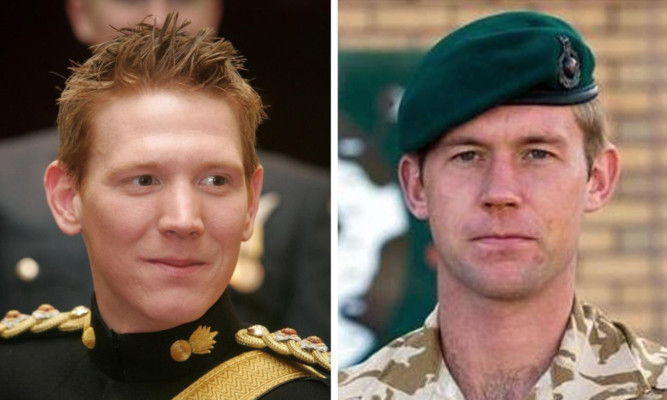British soldiers killed in a “friendly fire” incident in Afghanistan when they were hit by an anti-tank missile had repeatedly requested the rocket to be fired, an inquest heard.
A senior Danish officer, who was in command of the operation in which Captain Tom Sawyer, 26, and Corporal Danny Winter, 28, were killed, insisted British troops had “pushed” for the Javelin missile to be deployed.
The attack on the evening of January 14, 2009 had been ordered by the British troops’ Danish counterparts during a joint operation against the Taliban.
Capt Sawyer, of the Royal Artillery, and Cpl Winter, of 45 Commando Royal Marines, were among a group of British soldiers on a rooftop providing fire support for an operation clearing insurgent compounds north east of Gereshk in central Helmand.
Two other members of the Zulu Company were injured in the explosion, which happened around 800 metres from Forward Operating Base Gibraltar.
Investigations into the incident have shown that the missile was fired by British personnel but the order was given by a lieutenant in the Danish Army only referred to as Soldier A.
The Danish soldiers have declined to attend the inquest and their evidence would be given in witness statements.
The Danish officer commanding the operation, known as Soldier B, explained his soldiers, including a British Javelin missile team with night sight equipment, was on the roof of a compound.
Soldier B insisted that the Javelin missile operators had positively identified enemy insurgents crawling into position on the roof of a building and they spent up to one hour trying to locate Zulu Company.
“Soldier A and I interpreted this as the enemy was about to take up position closer to Zulu,” Soldier B said in a written statement read to the court.
“The Javelin unit reported several times they had positive identification of the enemy as they were assuming the whole of Zulu Company was inside the compound, which is why they were not expecting them to be visible on thermal sights as the walls around the compound were too thick.
“Over the network I asked Zulu Company to confirm they were inside the compound. I did not know the exact words used as it was signalman who was conducting the conversation.
“I found out from the signalman that Zulu Company was static which is why it could not be them that was moving.
“I and Soldier A did not want to fire the Javelin as Zulu Company was not under attack. There was therefore no imminent danger.
“Zulu Company asked repeatedly for us to engage the Javelin as they could see light about 100 metres from their position, which is why they were convinced they were soon to be attacked.
“The Javelin men confirmed several times they had clearly identified and requested permission to neutralise.
“Both Soldier A and the Gurkha observer had looked several times into the Javelin sight and could see people but Soldier A could not say for sure that they were enemies.
“But the Javelin men reported several times they were enemies and they had positively identified them.
“Javelin again asked for permission to fire as it looked as if the enemy were in the position of extricating themselves from the position.
“Soldier A was still in doubt, which is why he again ordered the observer to fire with his rifle using live tracers.
“This did not cause any immediate reaction from Zulu Company. The Javelin team observer said it was the right target and he could see the tracers around the enemy.
“He could also see that these people were throwing themselves down when there was firing. After this Soldier A ordered the Javelin marksman to fire off a shot towards the target.
“Immediately afterwards the Rifleman fired a rocket and reported he had hit the target but the target was still moving about, which is why he requested permission to fire again.
“Soldier A wanted a positive confirmation from Zulu Company that the enemy had been hit before firing again, so he refused to let them fire.”
